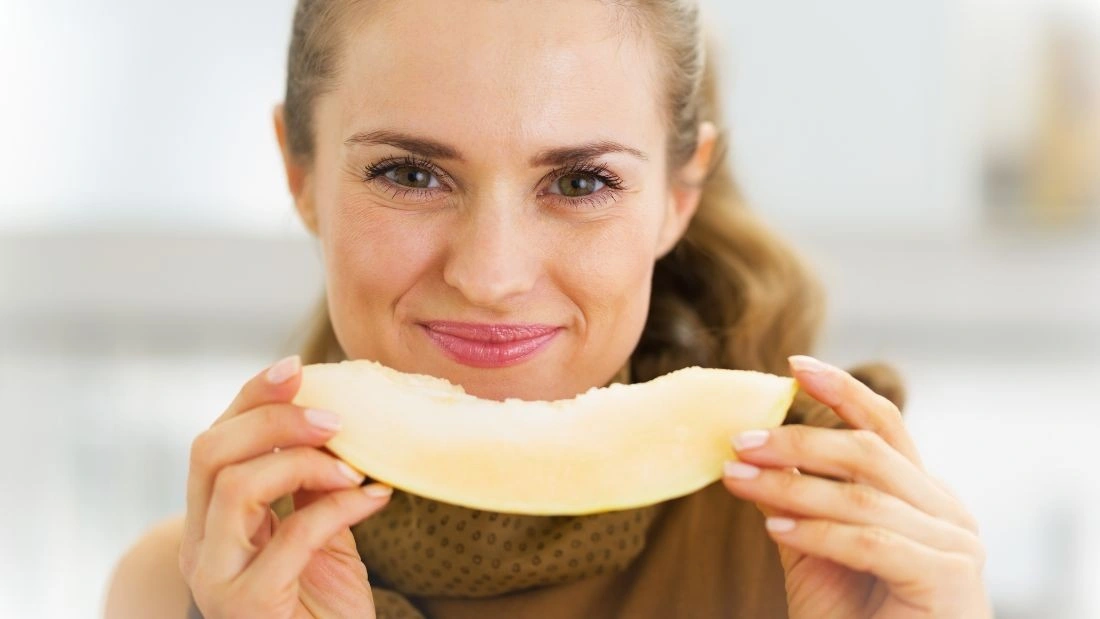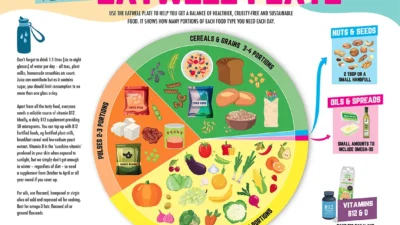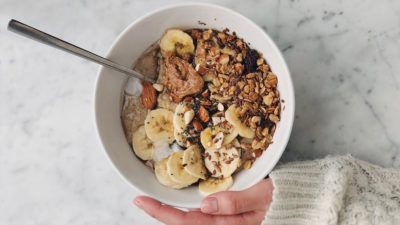Boost your mood: how a vegan diet nurtures your gut and brain

A healthy vegan diet is widely recognised for lowering the risk of obesity, diabetes, heart disease and cancer. But did you know it can also significantly contribute to a feeling of wellbeing and potentially alleviate symptoms of depression and anxiety?
Depression affects around 300 million adults worldwide, with one in six adults in the UK experiencing moderate to severe depression. While many factors influencing mental health are beyond our control (such as the cost-of-living crisis), diet and lifestyle changes offer a powerful avenue for support.
The gut feeling: your second brain
Your gut microbiome houses over 100 trillion microorganisms, impacting your health in profound ways. Scientists are increasingly uncovering how these gut bacteria modulate mental health through a complex network known as the gut-brain axis. This two-way communication channel links gastrointestinal activity with emotional and cognitive processes. It’s why anxiety can lead to an upset stomach, and chronic digestive issues can trigger mood changes.
Interestingly, the gut and brain share a common embryonic origin, which might explain why the enteric nervous system (ENS) lining our gut is often called the ‘second brain’.
The gut-brain axis: chemical messengers of mood
Certain beneficial gut bacteria produce crucial compounds such as serotonin, dopamine and gamma-aminobutyric acid (GABA), all of which help regulate our mood and behavior. An imbalance in the gut microbiome (known as dysbiosis) can reduce these beneficial bacteria, potentially contributing to symptoms of depression and anxiety.
Serotonin: the ‘happy chemical’
Often called the ‘happy chemical’, serotonin acts as both a hormone and a neurotransmitter, regulating mood, sleep and appetite. Approximately 90 per cent of our serotonin is produced in the gut, with the remaining 10 per cent made in the brain where it profoundly influences mood, reward, anger, aggression, appetite, memory and sexual feelings.
To produce serotonin, our bodies need the amino acid tryptophan. Excellent plant-based sources of tryptophan include:
- protein-rich foods: tofu, tempeh, edamame and other beans
- grains: quinoa and oats
- nuts and seeds: especially pumpkin seeds
For tryptophan to convert into serotonin in the brain, it needs to cross the blood-brain barrier. Carbohydrates assist this process by increasing insulin, which diverts competing amino acids, allowing more tryptophan to enter the brain. To enhance serotonin production, try pairing:
- oats with nuts
- quinoa with tofu
- brown rice with beans
It’s generally best to obtain tryptophan from whole foods rather than supplements (like 5-HTP), as these can interfere with anti-depression medications such as citalopram (Celexa), fluoxetine (Prozac), and sertraline (Zoloft).
Dopamine: pleasure and motivation
Dopamine acts as both a hormone and a neurotransmitter, often referred to as the pleasure or motivational molecule. It influences how we experience pleasure and reward, with activities like sex, shopping, music, nature, or food all capable of triggering its release.
Dopamine is produced from the amino acid tyrosine, found in:
- tofu
- tempeh
- edamame and other beans
- nuts and seeds, especially sesame seeds
Diets high in saturated fat may reduce dopamine signaling in the brain. Therefore, it’s advisable to limit animal fats (meat, eggs, butter, full-fat dairy), palm and coconut oils, and high-fat processed foods.
GABA: calmness and stress reduction
Both your gut bacteria and brain produce GABA (gamma-aminobutyric acid). In the brain, GABA acts as an inhibitory neurotransmitter, reducing anxiety and stress and promoting calmness. Emerging evidence suggests that imbalances in your gut microbiome can affect GABA levels, with lower levels potentially contributing to feelings of anxiousness.
Nourishing your microbiome for better mental health
The average diet in many Western countries, including the UK, lacks diversity, largely because 75 per cent of the world’s food comes from just 12 plant and five animal species. This is the opposite of what your gut microbes need to thrive. Unhealthy diets high in red and processed meat, high-fat dairy foods, fried foods, refined cereals, sweets and pastries are linked to poor gut health and dysbiosis, which is in turn linked to depression. Furthermore, fatty and processed foods are pro-inflammatory, negatively impacting the cardiovascular system and increasing the risk of depression.
To optimise your microbiome, you need to provide the right ingredients:
- probiotics: live beneficial bacteria found in supplements or naturally in fermented foods such as sauerkraut, kimchi and kombucha
- prebiotics: the food your gut microbes crave. All fibre-rich and starchy foods are prebiotics, meaning most vegan staples fit the bill! This includes a wide variety of fruits, vegetables, wholegrains, pulses, nuts, and seeds
Your gut microbes feast on prebiotics, producing health-beneficial compounds in return. Just like us, different types of bacteria have their favorite foods. Eating a wide variety of plants, along with some probiotic-rich foods such as kimchi or sauerkraut, can substantially improve your gut health. Look after your gut bacteria and they’ll look after you!
Fabulous fibre: the gut’s best friend
Providing plenty of fibre keeps your microbiome healthy and helps protect the integrity of your gut lining, reducing the risk of low-level inflammation linked to depression. Gut microbes also use fibre to produce chemical by-products called short-chain fatty acids, which benefit both them and your overall health.
Aim for around 30 grams of fibre per day, primarily from a wide variety of plant foods – remember, meat and dairy contain none!
- choose whole grains: use wholemeal bread, brown rice and wholewheat pasta instead of white, refined versions
- load up on fruits and vegetables: apples, pears, raspberries, Brussels sprouts, and avocados are excellent sources
- incorporate pulses: peas, beans, and lentils are fantastic sources of both fibre and protein
- snack on nuts and seeds: almonds and chia seeds can be added to breakfast cereals, desserts, and smoothies for an extra boost
These foods are rich in the fibre and polyphenols your gut microbes love. Unless you have an inflammatory bowel disease such as Crohn’s or colitis (where excess fibre can trigger or worsen symptoms), you don’t need to worry about eating too much fibre.
Additional factors affecting mental health
While diet is a powerful tool, it’s just one aspect of mental health. Exercise, adequate sleep, exposure to sunlight and quality time socialising and/or relaxing are equally important. While dietary changes can go some way to alleviating symptoms, it’s crucial to speak to a health professional if you are suffering from depression or any kind of mood disorder.
Ready to nourish your gut and boost your mood with a delicious vegan diet? Explore the possibilities for a happier, healthier you in our Vegan Recipe Club.







